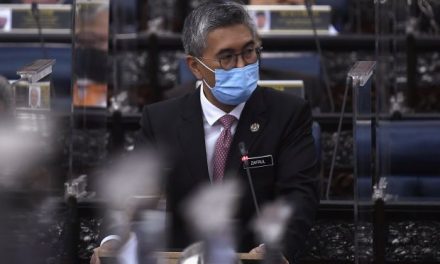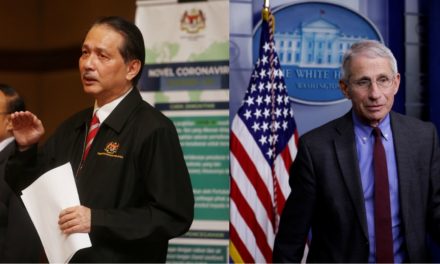Merdeka 118, the world’s second tallest tower, will surpass 644m tall upon spire completion
Malaysia will set another world record when its megatall structure, Merdeka 118, is completed in the third quarter of next year at nearly 700 metres above sea level. Merdeka 118’s current architectural height is about 644 metres, measured from the ground all the way to the top. The true height of the 118-floor megatall structure in Kuala Lumpur is expected to be revealed next year, when it is fully completed. “The spire is currently being built. It will be installed at the highest point of the tower within the next few months, increasing the tower’s height,” according to sources. Even at 644 metres, Merdeka 118 is set to be the world’s second-tallest structure. It will be listed along with some of the world’s tallest buildings like Burj Khalifa in Dubai, UAE, the world’s tallest tower with a height of 828 metres, and the Shanghai Tower in China, which currently is the second tallest tower in the world, with a height of 632 metres. Merdeka 118 is an RM5 billion development that is being developed in three phases on a 19-acre site in downtown Kuala Lumpur’s historical enclave. (NST Online)
Petaling district has highest population in Malaysia in 2020 with 2.16 million
The Petaling district recorded the highest population in 2020 with 2.16 million, according to the My Local Stats 2020 publication released by the Department of Statistics Malaysia (DOSM). This is followed by Kuala Lumpur with 1.77 million and Johor Baru with 1.56 million. Other findings in terms of demographics found that Malaysia’s population aged 65 and above had increased to 7.0% in 2020 with Perak recording the highest percentage of older age population at 11%. “The findings show that the country is facing a challenge in tackling the increase in the percentage of older age population by 2030,” it said. My Local Stats 2020 is the fourth in its series since 2017. Chief Statistician Datuk Seri Mohd Uzir Mahidin said the availability of more detailed statistics at the local level would benefit the state government and local authorities in improving existing policies, governance and socio-economic needs of the people. (Malay Mail)
Kwasa Land to develop its first affordable housing with Gagasan Nadi Cergas
Kwasa Land Sdn Bhd, a wholly owned subsidiary of the Employees Provident Fund Board and Kwasa Damansara township’s master developer, has collaborated with Gagasan Nadi Cergas Bhd to develop its first affordable housing project under Rumah Selangorku. Following Budget 2020, the pension fund has reaffirmed its commitment towards providing housing to the B40 and M40 income groups. Simultaneously, the move is also in support of Selangor state government’s post Covid-19 economic recovery plan announced in July 2020. For the affordable housing project, it has identified two residential plots with an estimated combined land area of 39.12 acres for the development of 3,990 units with Phase 1 targeted for completion by end-2024. Kwasa Land will allocate 40% of the total housing in the township as affordable home units. In total, the project’s GDV is estimated to be at RM1 billion and each phase will take 36 months to develop with a price of RM250,000. (The Sun Daily)
RM199mil Paloh-Bekok road project to start next year
The RM199 million new road project in Johor to connect Paloh town in Kluang with Bekok town, will begin in the second quarter of next year. State Works, Transportation and Infrastructure Committee chairman Mohd Solihan Badri said this project under the 12th Malaysia Plan (12MP) would benefit about 29,200 local residents. “With this high-impact project, the distance and travel time between Segamat and Kluang districts will be shortened,” he said. The project connecting the two districts is now at the designing stage and is expected to start in the middle of next year after the tender offer. The new dual carriageway is expected to be ready in three years. Mohd Solihan said currently, the residents would take over an hour to get to Paloh from Bekok for a distance of about 71 kilometres, but the new road would take less than 30 minutes, one-way, for a distance of about 13 km. (The Edge)
KL mayor: Changes in Federal Hill part and parcel of city evolution
Even as concerned Kuala Lumpur residents continue to push for the authorities to preserve Bukit Persekutuan, KL Mayor Datuk Seri Mahadi Che Ngha has clarified City Hall’s position on the matter. Mahadi said the residents as well as environmentalists and other pressure groups who have been fighting for this cause need to understand that the area previously called Federal Hill is not government land and that it belongs to the federal government as private land. “You cannot just gazette it and we have laws for this. If we want to do it, we have to acquire the land and be ready to pay compensation,” Mahadi explained. Calls to gazette Bukit Persekutuan grew as more residents in the area learned that there were plans for a mega development project, and that it will be located at the land parcel where the National Institutes of Health (NIH) was located. Residents there have recently cited several incidents, including soil erosion and wildlife coming into their housing compound, as reasons for concern. (Malay Mail)
Hamzah: Legalise foreign workers
The Home Ministry’s Labour Recalibration Programme, where employers are allowed to legalise undocumented foreign workers, has been expanded to more sectors. Home Minister Datuk Seri Hamzah Zainudin said employers in all sectors, except certain ones that have been frozen, can register their workers with the programme until Dec 31. The Recalibration Plan is a chance for employers who are hiring illegal foreign workers to come forward and register with the programme to ensure that all individuals in the country are legal and documented. Initially, the Labour recalibration programme was for employers in the construction, manufacturing, plantation and agriculture sectors to legally employ undocumented foreign workers. This was later extended to employers in the sub-sectors of the service industry – restaurants, cargo, wholesale and retail, and cleaning services. On the entry of new foreign workers, the government has said the cost of the mandatory quarantine of new foreign workers must be borne by employers. (The Star)





